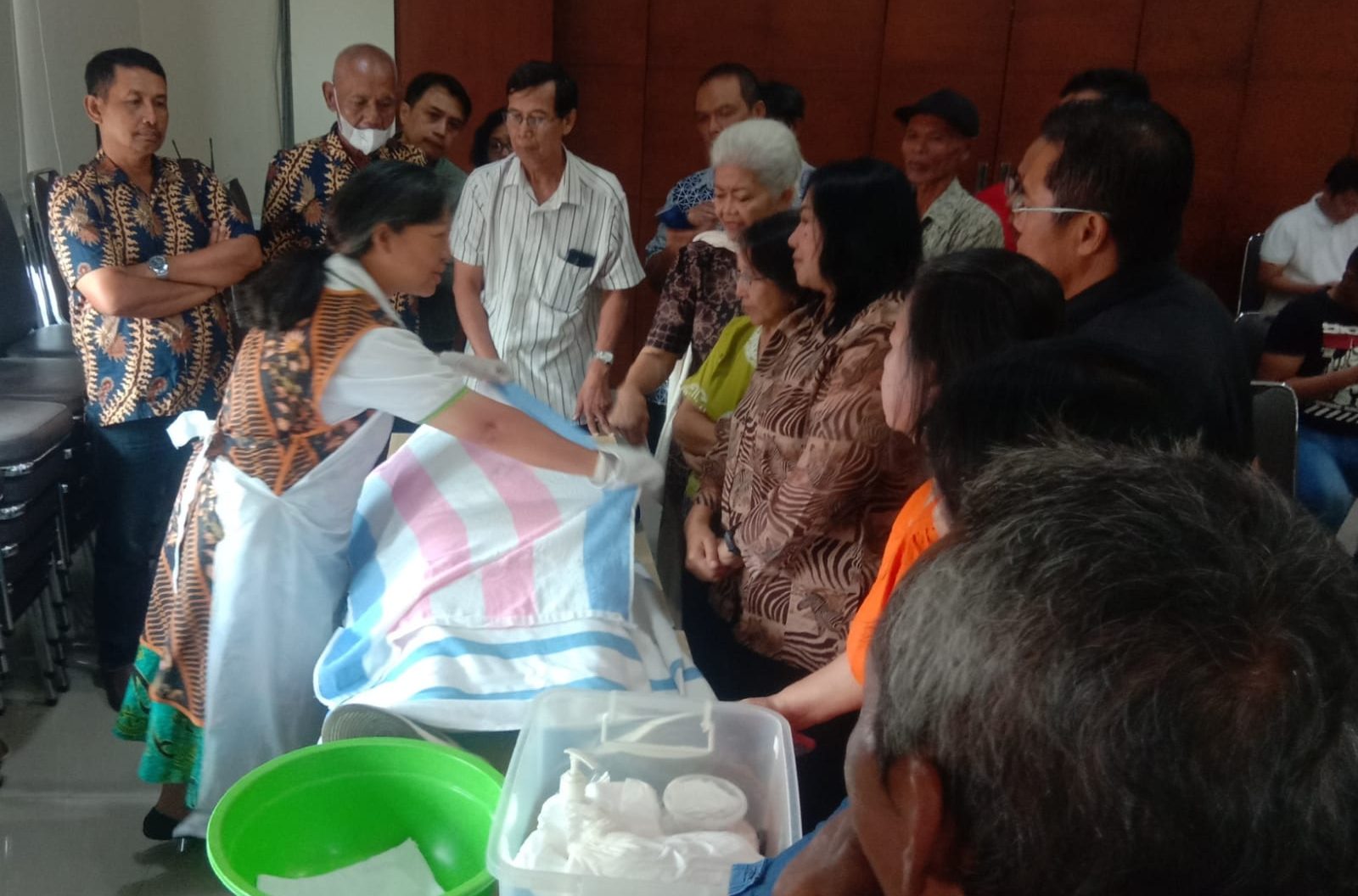A Catholic parish in Central Java has organized a special training session to help Church volunteers properly care for the deceased, emphasizing dignity, reverence, and spiritual support in line with Catholic teachings.
Held last week at St. Paul’s Church, Kleco Parish in collaboration with Brayat Minulyo Hospital Surakarta, the “Catholic-standard Funeral Care Training” gathered more than 90 participants—mostly parishioners—from 51 local communities.
The program was organized under the Pangruktilaya Ministry Team, a local service dedicated to end-of-life ministry.
The term Pangruktilaya is a Javanese word that refers to the respectful care and preparation of a deceased person before their final rest.
The training aimed to provide both practical skills and spiritual context for volunteers involved in funeral care within the Church.
“Funeral care is a noble ministry,” said Fr. Aloysius Kriswinarto MSF, chief parish priest, in his opening remarks. “Funeral care ministers assist the deceased by caring for and preparing them properly to meet the Lord.”
The team from Brayat Minulyo Hospital—run by the Franciscan Sisters of OSF Semarang—guided participants in understanding the theological significance of death, highlighting Scripture passages such as “For to me, to live is Christ and to die is gain” (Philippians 1:21), and “Life is changed, not ended. And when our earthly dwelling falls, an eternal home in heaven is prepared for us.”
The training also offered detailed instructions on Catholic funeral care, including respecting the wishes of the bereaved family, gathering information on the deceased’s medical history, and providing both emotional and spiritual support.
Emphasis was placed on maintaining privacy, preserving dignity, and avoiding actions that may lead to gossip within the community.
Volunteers were advised to prepare all necessary tools and wear appropriate protective gear such as gloves and masks.
The rite begins with prayer, and participants are encouraged to “communicate” with the deceased during the process—for example: “Please forgive us, Sir/Madam. You are going to meet God. Let us bathe and cleanse your body, so you are fresh, clean, and dressed properly to meet Him.”
Participants also engaged in practical sessions. One attendee shared a useful tip: applying vinegar can help loosen stiffened muscles, especially in the legs.
The training concluded with a renewed commitment among participants to uphold dignity and reverence in their ministry to the dead, as an act of service to both the departed and their grieving families.







